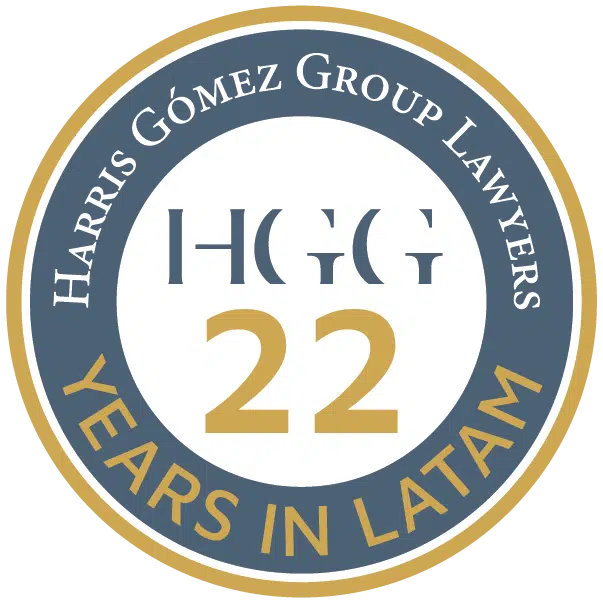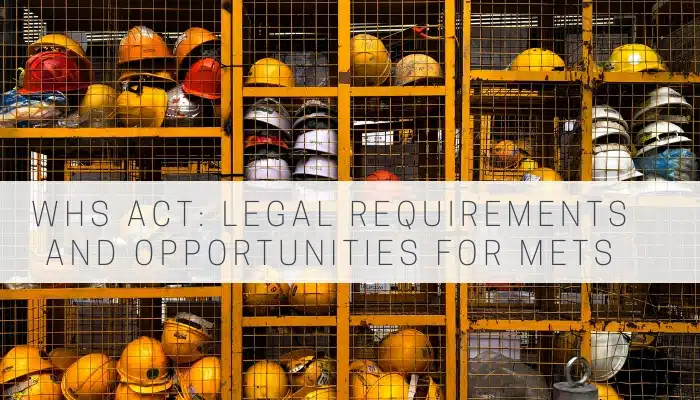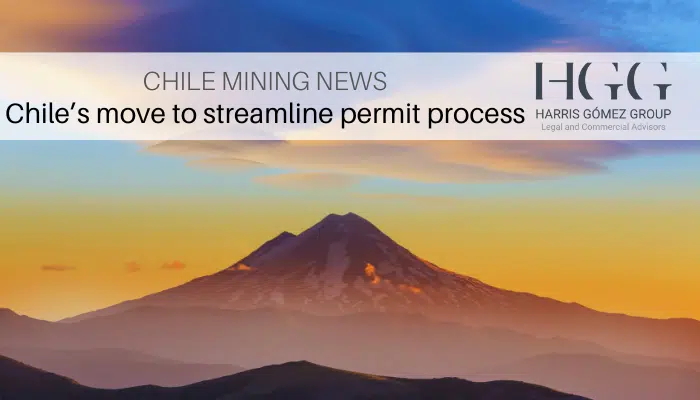The mining industry has seen a number of exciting technological developments over the past few years. Over the last 12 months, our team has traveled extensively between Brisbane, Melbourne, Sydney, and Perth to speak with Mining Equipment, Technology & Services (METS) companies to learn more about their businesses and developments, and of course the products and services these companies offer.
One very positive trend we have seen in action is the demand for improved safety in mines. METS companies are on the cutting-edge of meeting this demand, providing new and innovative solutions for mines and their workers.
Interestingly, this is one area where METS companies and the law heavily intersect, and it comes down to the legal work health and safety duty of due diligence.
What is the applicable work health and safety law in Australia?
Australian work health and safety laws and regulation is broadly similar across all states and territories, and for the most part uniform. The model law Work Health and Safety Act 2011(the WHS Act) applies across all jurisdictions in Australia except for Victoria and Western Australia. While we will be focusing on the WHS Act in this article, with upcoming expected changes in WA this information will also apply generally to that jurisdiction.
What is due diligence?
The WHS Act imposes a positive duty on officers of corporations as well as unincorporated bodies (such as associations or clubs) that requires them to exercise due diligence to ensure that it meets its work health and safety obligations.
It is important to stress that this duty requires officer to be proactive in ensuring compliance. As per s 27(5) of the WHS, due diligence takes on the meaning of taking reasonable steps to do the following:
- Acquiring and keeping up-to-date knowledge of work health and safety matters;
- Understanding the operations that are being carried out by the person conducting the business, and of the hazards and risks associated with the operations;
- Ensuring that the person conducting the business or undertaking has available for use, and uses, appropriate resources and processes to eliminate or minimise health and safety risks that arises as part of the conduct of the business;
- Ensuring that the person conducting the business has appropriate processes in place to receive and consider information regarding incidents, hazards and risks, and to respond to this in a timely way; and
- Ensuring that the person conducting the business has, and implements, processes for complying with duties or obligations under the WHS Act.
What is the impact of technology on due diligence?
Throughout Australia (including WA), over the last 10 years an increased regulatory burden on mining companies has become evident due to the increased use and availability of technology that has resulted in improved safety outcomes for mines. The current framework has meant it is easier for employers to be prosecuted in instances where technology may have been implemented in order to reduce the risk of harm. Given the increased regulatory burden that this places on officers, it is important that officers of METS and mining companies periodically review their health and safety practices. As part of meeting this due diligence requirement, these officers should be asking themselves whether the practices that are in place will still be relevant and best practice in five or ten years’ time, or alternately whether advances in technology and knowledge have dictated a change in approach in order to meet the obligations.
How is this seen in the field?
METS companies have been exceptional at creating technology to reduce safety risks. This can be seen in simpler instances such as the use of cameras to eliminate blind-spots, and higher-end solutions like the use of autonomous vehicles for the transport of dangerous chemicals.
Australian courts are already considering cases where heavy vehicles have come into contact and injured employees in circumstances of poor visibility. In such cases, it is always asked if cameras and alarm systems should been implemented and whether this could have lowered the risk level. The positive due diligence duty represents an increased burden on employers to ensure that they implement technology where possible to reduce the risk of harm.
Using technology to keep people safe
The increased availability and relatively economical costs of a number of technological advancements (such as autonomous vehicles, video, and remote technology) mean that mining companies will already be looking to employ this technology in order to increase safety and convenience and reduce risk on site. The legal implications of this means that if an accident occurs and it can be shown that technology could have prevented it or reduced the risk of it occurring, then the employer will need to provide a good explanation as to why it was not used or they may be found to have failed to meet their duty of care. Given this risk, we strongly recommend that mining companies consider the work health and safety measures on a regular basis to ensure that their current measures are appropriate and meeting their legal obligations under the WHS Act. This may include appointing a technology officer, including it on the agenda at board meetings and having external reviews of protocol.
We understand from our conversations with various METS companies that it can be difficult to sell solutions where there may be minimal impact on the mining clients margins or productivity. Often it takes an accident for mining companies to take action in certain less obvious areas of risk. The opportunity for METS companies is effectively communicating where their solutions can be used on-site to reduce risk. This includes helping mining companies understand how it will reduce their exposure to the legal implications that may come from WHSAct.
The other side of the coin is that METS companies themselves need to ensure that they are in compliance with the WHS Act. The measures to ensure compliance do not have to be overwhelming or expensive. Harris Gomez Group has a history of working with METS companies, and in particular technology companies. This means we already have knowledgeand an awareness of specific issues in the industry and can prepare practical solutions.
Harris Gomez Group is a Common Law firm, with offices in Santiago, Bogotá, and Sydney. We also have legal teams in Peru, Bolivia, Ecuador, Brazil, and Argentina. Over the last 18 years, we have been supporting foreign companies with their growth in Latin America. Many of our clients are technology companies, service providers and engineering companies that focus on the mining, energy and infrastructure markets.
To better understand how we can support your management team in the Region, please contact us at hello@hgomezgroup.com






